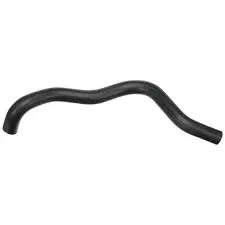hydraulic hose for power steering
nóv . 13, 2024 12:06 Back to list
hydraulic hose for power steering
The Importance of Hydraulic Hoses in Power Steering Systems
Hydraulic hoses play a crucial role in the functionality of modern vehicles, particularly in systems such as power steering. Power steering significantly enhances driving comfort and safety, allowing drivers to maneuver vehicles with ease, even at slow speeds. At the heart of this innovation lies hydraulic technology, which relies heavily on the efficiency and reliability of hydraulic hoses.
Understanding Power Steering Systems
Power steering systems are designed to amplify the driver's input when turning the steering wheel. Traditional mechanical systems often required significant physical effort, especially in larger vehicles. The introduction of hydraulic power steering systems marked a major evolution in vehicle design, offering smoother, more responsive steering.
In hydraulic power steering systems, fluid is pressurized and directed through a series of hydraulic hoses and fittings. This pressurized fluid acts on a piston that assists in turning the wheels, thus reducing the effort required from the driver. Hydraulic hoses are the conduits through which this vital fluid travels, and they must operate under high pressure to ensure the system functions effectively.
The Role of Hydraulic Hoses
Hydraulic hoses are designed to withstand high pressure and extreme environmental conditions. Crafted from robust materials such as reinforced rubber or synthetic compounds, these hoses provide the necessary flexibility and durability. The proper functioning of hydraulic hoses is critical; a failure can lead to power steering loss, which not only compromises vehicle control but can also pose significant safety risks.
Key Features of Hydraulic Hoses
1. Pressure Rating Hydraulic hoses for power steering systems are built to handle high pressures, often exceeding 2000 psi. It is essential that the hoses are selected based on their pressure rating to ensure they can withstand the forces exerted during operation.
hydraulic hose for power steering

2. Temperature Resistance Power steering systems generate heat during operation, so hydraulic hoses need to endure varying temperatures. The materials used in hose construction must be able to resist degradation due to heat while maintaining flexibility.
3. Flexibility and Bend Radius Due to the cramped spaces within vehicle engines and chassis, hydraulic hoses must be flexible enough to fit within tight installations without kinking. A proper bend radius is crucial to prevent the hose from collapsing under pressure, which could lead to system failure.
4. Chemical Resistance Hydraulic fluid can often be corrosive. Therefore, the outer layer of hydraulic hoses is designed to be resistant to oil, fuel, and other chemicals they may encounter in automotive applications.
5. Ease of Installation Many hydraulic hoses come with pre-fitted connectors (such as JIC or SAE fittings) for ease of installation, which can save time and reduce the risk of leaks during assembly.
Maintenance and Replacement
Regular maintenance of the hydraulic steering system is essential for ensuring vehicle safety and functionality. Drivers should be aware of common signs of hydraulic hose problems, such as fluid leaks, steering stiffness, or unusual noises when turning the wheel. If any of these symptoms are observed, it is advisable to have the hydraulic hoses inspected.
Replacing worn or damaged hydraulic hoses is critical. The replacement process should involve removing the old hoses carefully and ensuring that new hoses are installed correctly to avoid pressure loss or leaks. It is also advisable to use hoses that meet or exceed the OEM specifications to ensure compatibility and reliability.
Conclusion
Hydraulic hoses are an integral component of power steering systems, contributing significantly to vehicle safety and ease of handling. Understanding the importance of hydraulic hoses, their design features, and the necessity for regular maintenance can help drivers ensure that their power steering systems function seamlessly. Investing in high-quality hydraulic hoses and adhering to maintenance recommendations can lead to improved performance and longevity of vehicle steering systems. As automotive technology continues to evolve, the reliance on dependable hydraulic hoses will remain a cornerstone in enhancing the driving experience.
